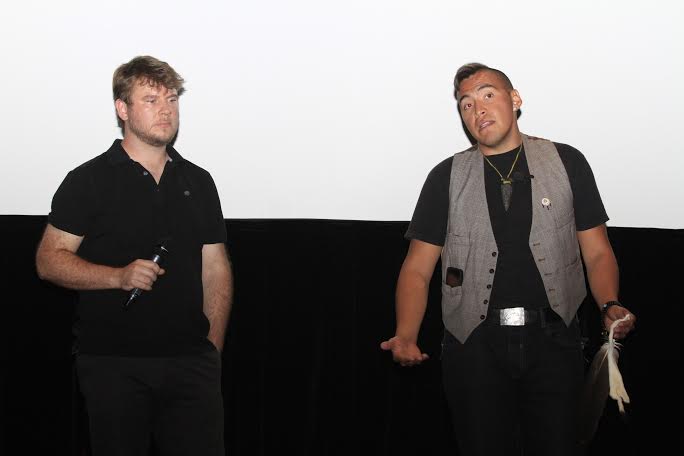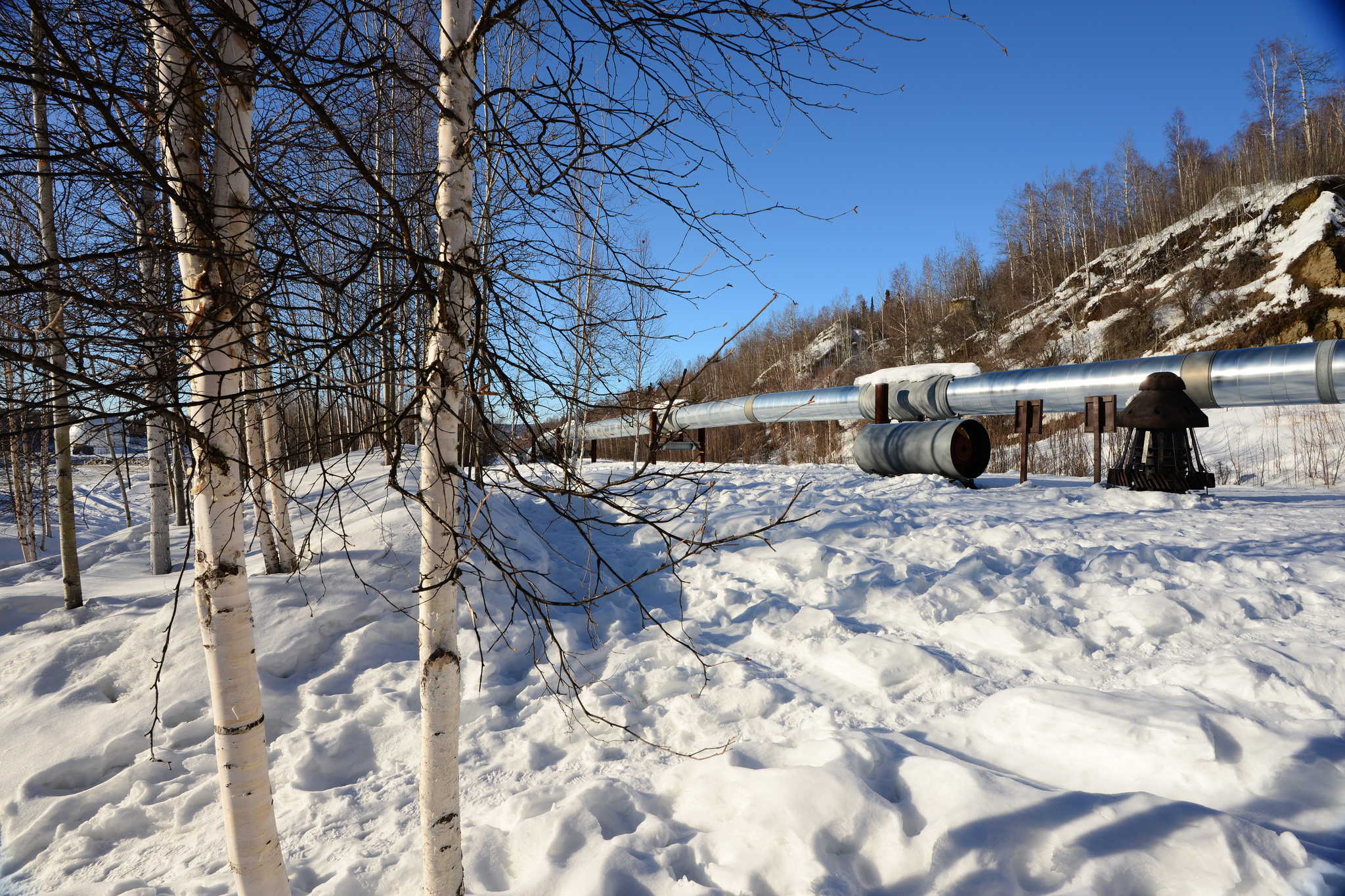The Yukon, like B.C., is home to some of the largest shale gas deposits on the planet. The difference is that B.C. has already gone wild on fracking, whereas the Yukon has shielded itself with a moratorium.
The Council of Canadians and the The Yukon Conservation Society (YCS) partnered on events about Fracking and LNG as the Yukon Government Select Committee Regarding the Risks and benefits of Hydraulic Fracking reviews the possibility of nixing its 2012 moratorium and future possible fracking projects.
The speaking tour brought Damien Gillis, co-director of the forthcoming documentary Fractured Land, and First Nations lawyer from the front lines of fracking in northern B.C. Caleb Behn, to the Yukon communities of Whitehorse, Dawson City and Watson Lake to discuss their experience with fracking in British Columbia and what impacts fracking and LNG may have on the Yukon.
The select committee will be providing their recommendation on whether fracking goes ahead when the government sits in October after public hearings over the past several months which will wrap next week. This is a critical window to stop fracking in the Yukon before it starts.
The oil and gas industry has its eyes set on drilling in the North. Already, Northern Cross has been doing exploration activities after being granted a license from the Yukon Government Oil and Gas Branch. Their plan centers on un-conventional drilling in the Eagle Plains, which has the largest oil and gas potential of any onshore basin in the Yukon.
According to a Council of Canadians representative from the Yukon, one of the main concerns for people up North is water: “We want to ensure we keep our seven rivers clean, for recreation and tourism, for the pristine wilderness, and for safe drinking water for the future. If they decide to frack Eagle Plains, they would be entering the Territorial park with drilling equipment and hundreds of trucks every day. The cut-line would affect wildlife and water.
Another major concern is climate change. While the B.C. government continues to state that fracking is a clean energy source to move us away from coal, studies explain that “compared to coal, the footprint of shale gas is at least 20 per cent greater and perhaps more than twice as great on the 20-year horizon and is comparable when compared over 100 years”. The greater footprint come as a result of methane emissions released during the hydraulic fracturing of wells, whereby methane pollutes at least 30 per cent more than conventional gas.
The potential $40-million investment on fossil fuels would be better spent on renewable energies in the Yukon. According to a Council of Canadians representative from the Yukon there has been a small local movement for solar panels on homes, and for electric thermal. The Yukon has looked to Alaska, where six to seven communities are using a mix of solar and wind, and using thermal to store it, and they are 100 per cent off the grid.

Damien Gillis debunked some of the myths about fracking in B.C. for Yukoners: “Fracking has been justified to the public based on all the jobs and benefits it promises. But the reality is this industry is almost dead last when it comes to job creation sectors in B.C., providing just 3,000 direct jobs a year — according to Stats B.C. And the way the royalties and export taxes are being structured, what we are really seeing is of very little benefit to the public, with extraordinary costs.”
A report by Blue Green Canada showed how the oil and gas sector is a relatively low job-creating industry compared to investments in renewables. For every $1 million invested, there is a two to 15 ratio in jobs in oil and gas compared to in clean energy (wind, solar, hydro and biomass).
What’s more, though government and industry claim that we need fracking for our energy security, the lion’s share of the proposed new development is for export.
It’s possible that even if Yukoners oppose fracking en masse at the select committee hearing, they won’t be listened to, says a Council of Canadians Yukon representative. Communities opposed the building of an LNG plant, but the government went ahead anyway. It built an LNG-based electricity generating facility less than two kilometers away from Whitehorse, close to schools and the hospital.
According to the Yukon Conservation Society, the Yukon Energy Corporation (YEC) is proposing to replace two of their diesel generators with natural gas generators. A new facility with Liquefied Natural Gas (LNG) offloading, storage, vapourization and gas electricity generating infrastructure will be required.
The problem is that, increasingly, the feedstock for LNG is fracking. Lana Lowe, the Lands director with the Fort Nelson First Nation explained to the select committee that: “LNG leads to fracking” and fracking is an “environmental disaster” to her First Nation.
While the Yukon risks seeing the same kind of environmental disaster, First Nations and citizens groups are organizing to stop fracking before it starts. The Council of Yukon First Nations, passed a resolution unanimously at their general assembly in July 2013 declaring traditional territories “frack-free.” According to the fractivist toolkit, “shortly after, Vuntut Gwitchin First Nation voted to ban fracking until it could be proven safe. Kaska First Nation has also come out against fracking. Even some businesses in the tourism industry are opposed to fracking.”
Yukoners achieved a moratorium on fracking in 2012, long before many of us had even heard of fracking. With the support of key groups like Yukoners Concerned about Oil and Gas Exploration/Development, Yukoners showed up at public hearings, collected over 4,000 signatures, organized rallies, sent letters to the editor, and because of this show of force in a small territory, the political party in power was forced to listen.
A major threat that remains to protecting the Yukon is the Harper government that has focused on the North in order to push resource extraction. At a speech delivered in the Yukon, Harper said “The North’s time has come, my friends, and you ain’t seen nothing yet” and that the nation’s future lies in the exploitation of the nation’s northern resource riches. A Council of Canadians Yukon representative reports him hiring four communications specialists in the past year.
The Nation’s future does indeed lie in the North, and a sane, clean, economic, and healthy future, relies on us protecting it from an un-regulated and reckless resource rush. It’s still possible to stop the Yukon from sharing the same fate of northern B.C. in terms of becoming a sacrifice zone for fracking, fracked gas pipelines, and LNG terminals for the sake of the oil and gas industry.
A Council of Canadians representative says that when it comes to challenging fracking in the Yukon, we need the support from people outside of the Yukon. She says we need the whole country behind us.
Feature image: Flickr/K Hayashi



